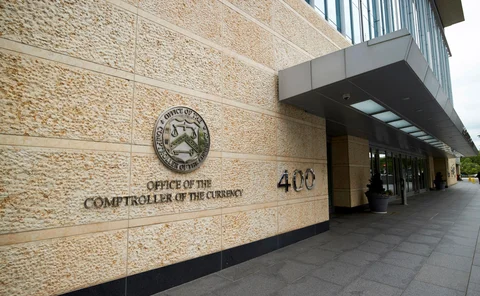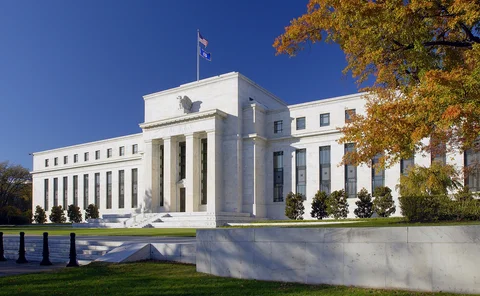Financial stability
Emerging trends in op risk
Karen Man, partner and member of the global financial institutions leadership team at Baker McKenzie, discusses emerging op risks in the wake of the Covid‑19 pandemic, a rise in cyber attacks, concerns around conduct and culture, and the complexities of…
US watchdog urges banks to uphold cross-border trust
Federal regulators assess financial spillover from Russian offensive as volatility surges and sanctions bite
BlackRock’s 65% of AUM accounts for 1% of global emissions
Asset manager’s absolute emissions linked to corporate securities and real estate stood at 330.7 million tons of CO2e in 2020
Central counterparty capital and nondefault losses
This paper analyses the components of central counterparty (CCP) capital requirements and makes several observations on the potential for loss absorption.
Source of systemic risk varies by region
European, Canadian and UK banks are too big to fail because of their cross-border activities, Chinese and Japanese banks because of their size
JPM, BNP Paribas and Goldman hit with higher capital surcharges
Banks slapped with extra 50 basis points of capital add-on
Dealers scramble to meet SEC swaps rule deadline
Dealers battle buy-side inertia and eleventh-hour confusion as belated security-based swap rules bite
FICC calls for rehypothecation relief to scale US Treasuries clearing
Current prohibition on margin re-use penalises sponsored clearing of cash instruments
Systemic US banks’ bail-in buffers rose in Q2
Morgan Stanley posts largest amount of headroom, while Citi, State Street and Wells Fargo trail behind
Default risk set to rise from climate inaction – ECB
‘Hothouse world’ scenario could see average probability of default increase significantly more than under both orderly or belated transition
FSB debates how to fit climate risk into capital rules
Regulators ponder whether climate risk needs new RWAs or recalibration of existing ones
Fund industry bristles at rush to re-write MMF rules
ICI questions regulators’ assumptions about the role MMFs played in Covid-19 liquidity crunch
How Brexit split Aegon’s euro swaps book
Years-long effort saw trades quietly move to Frankfurt – but firm wants continued access to LCH
Systemic indicators surged at European banks in 2020
Values used for 10 of 12 systemic risk indicators climb year-on-year
Fed’s repo facility won’t end US Treasury woes, experts say
Dealer facility does little to address root causes of recent liquidity shocks
The unintended consequences of ring-fencing
Rules aimed at protecting UK depositors may be putting too much froth into the credit market
Archegos shows up US swaps reporting shambles
Problems with existing data mean SEC’s pending TRS reporting rules won’t bring the issue to order
G-Sib regime: something’s broken
US banks are taking the Fed for a ride – it’s time to address the issue
Detection of financial fraud risk: implications for financial stability
This introduction to the Journal of Operational Risk special issue shines a light on the relationship between financial fraud risks and financial stability.
Guy Debelle on the FX Global Code and the rise of the buy side
Asia Risk 25: Code’s creators considering updates to sections on last look and pre-hedging
Structural systemic risk: evolution and main drivers
This paper analyzes how systemic risk structurally evolved between 2007 and 2017. The main contributions of the paper to the literature include the methodology, analysis and potential use for macroprudential policies.
Statistical properties of the population stability index
This paper aims to fill a gap in the literature by providing statistical properties of the population stability index (PSI) and some recommendations on its use.
EU banks and state-backed loans: bad news with a long fuse
EU banks face a time bomb as public guarantee schemes expire next year
Supervisory bank risk early warning modeling: an examiner’s first line of defense
The results of this paper show that robust forward-looking statistical models are superior to backward-looking assessments of supervisory compliance, which could lead to less regulatory burden when integrated into the examination process, particularly at…















